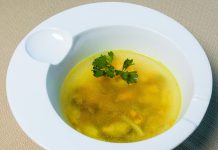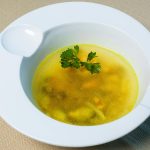A robust heart is paramount for overall wellness and vitality. Maintaining heart health is key to reducing the risk of various diseases and promoting overall well-being.
Implementing lifestyle changes, adopting a balanced diet, and engaging in regular exercise are fundamental steps toward supporting heart function. There’s no better time to embark on this journey than today, regardless of your current life stage. Let’s begin!
Supporting Heart Health
Heart diseases are often silent adversaries, posing threats regardless of age, gender, or  ethnicity. Factors such as cholesterol, hypertension, stress, anxiety, diabetes, and obesity contribute to cardiovascular ailments. Unhealthy habits like poor dietary choices, smoking, sedentary lifestyle, and substance abuse further exacerbate these risks.
ethnicity. Factors such as cholesterol, hypertension, stress, anxiety, diabetes, and obesity contribute to cardiovascular ailments. Unhealthy habits like poor dietary choices, smoking, sedentary lifestyle, and substance abuse further exacerbate these risks.
While hereditary heart conditions may be unavoidable, proactive measures can significantly mitigate associated risks. Opting for heart-healthy foods such as vegetables, fruits, lean meats, nuts, low-fat dairy, and fatty fish can bolster heart function. Incorporating monounsaturated and polyunsaturated fats into your diet in moderation also proves beneficial.
Additionally, breaking detrimental habits, engaging in regular physical activity, and maintaining a healthy weight can positively impact heart health by enhancing cardiac efficiency.
Utilizing Heart-Boosting Herbs 
Integrating heart-protective herbs into your diet offers a natural approach to supporting cardiovascular function. However, exercise caution when considering dietary supplements or herbal products, especially if you’re concurrently taking medications for heart-related conditions. Prior consultation with a healthcare professional is advisable.
Below are some herbs renowned for their heart-supportive properties:
Blessed Thistle (Cnicus benedictus): Known for its cardio-tonic and blood-purifying attributes, blessed thistle aids in regulating blood circulation and overall organ function.
Cayenne (Capsicum annuum): Rich in capsaicin, cayenne exhibits vasodilatory effects, enhancing blood circulation and preventing clot formation. Consuming cayenne diluted in water may offer protection against heart attacks.
Cinnamon (Cinnamomum verum): With its cholesterol-lowering and blood sugar-regulating properties, cinnamon proves beneficial for individuals with metabolic disorders, such as diabetes, reducing the risk of cardiovascular complications.
Fennel (Foeniculum vulgare): Abundant in copper and zinc, fennel promotes red blood cell production, ensuring adequate oxygenation throughout the body. Its fiber content aids in cholesterol reduction.
Garlic (Allium sativum): Renowned for its blood pressure-lowering effects, garlic mitigates arterial plaque formation, thereby reducing cardiovascular risk.
Ginger (Zingiber officinale): Containing gingerol and shogaol compounds, ginger helps maintain healthy blood triglyceride levels, potentially reducing the risk of stroke and heart disease.
Ginkgo (Ginkgo biloba): When consumed judiciously, ginkgo serves as an effective cardio tonic, improving blood vessel elasticity and reducing the likelihood of circulatory disorders.
Ginseng (Panax ginseng): Recognized for its cardioprotective properties, ginseng aids in mitigating heart failure and safeguarding against further cardiac damage.
Goldenseal (Hydrastis canadensis): Rich in berberine, goldenseal exhibits antibiotic properties and supports heart health by addressing arrhythmia.
Hawthorn (Crataegus monogyna): Regarded as one of the most potent heart-restorative herbs, hawthorn regulates blood flow and pressure, albeit with gradual onset of effects.
Indian Snakeroot (Rauwolfia serpentina): Effective in treating hypertension and cardiac edema, Indian snakeroot acts as a vasodilator, calming blood vessels and reducing agitation.
Lemon Balm (Melissa officinalis): Beneficial for managing arrhythmia and alleviating stress and anxiety, lemon balm offers a calming effect on the heart and nervous system.
Parsley (Petroselinum crispum): A blood tonic rich in nutrients, parsley aids in blood purification, reducing the risk of cardiovascular issues.
Rosemary (Rosmarinus officinalis): With its insulin-like effects, rosemary helps regulate blood sugar levels, safeguarding against arterial and neural damage.
Yerba Mate (Ilex paraguariensis): Known for its cholesterol-lowering properties, yerba mate prevents plaque accumulation, thereby protecting the heart from oxidative stress.
Heart-Supportive Tea Recipe
Crafting a heart-supportive herbal tea is a simple yet effective way to promote heart 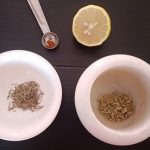 health. This recipe combines fennel, rosemary, and cayenne for a potent blend of cardio-tonic herbs:
health. This recipe combines fennel, rosemary, and cayenne for a potent blend of cardio-tonic herbs:
Ingredients:
- 1 tsp fennel seeds
- 1 tsp dried rosemary leaves
- Pinch of cayenne
- 1 tbsp lemon juice (adjust to taste)
- 2 cups hot water
Steps:
- Crush the fennel seeds.
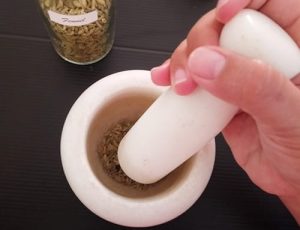
- Place the crushed fennel seeds and dried rosemary leaves in a pot and bring to a near boil.
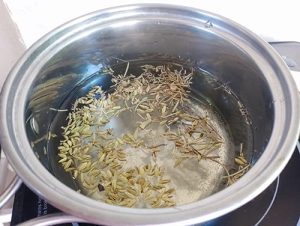
- Remove from heat and let steep for 5 minutes.
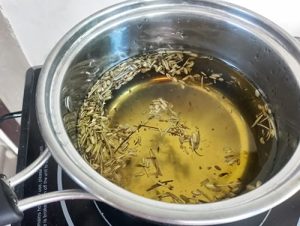
- Strain into a cup and add cayenne and lemon juice to taste.
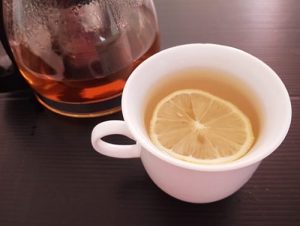
For optimal results, consume 2 to 3 cups of this cardio tonic tea daily. Exercise caution not to exceed recommended doses of fennel and rosemary, especially during pregnancy or while on certain medications.
Find your Good Health Blessings Here:






